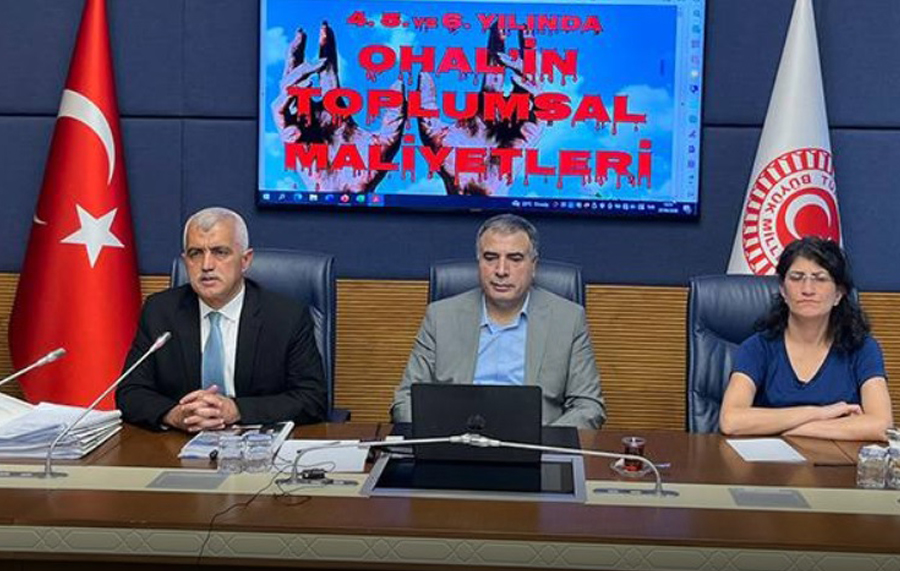A recent report by the Justice for Victims Platform has revealed that more than 83 percent of victims of a massive purge of state institutions by the Turkish government in the aftermath of a failed coup in 2016 are struggling to make ends meet, the Gazete Duvar news website reported on Monday.
Turkey’s Justice and Development Party (AKP) government declared a state of emergency following an abortive putsch on July 15, 2016 that remained in effect until July 19, 2018. During the state of emergency the AKP carried out a purge of state institutions under the pretext of an anti-coup fight by issuing a number of government decrees, known as KHKs, purging 130,000 civil servants from their jobs due to their real or alleged connections to “terrorist organizations.”
The report, titled “The Social Costs of OHAL [State of Emergency] in its 4th, 5th [and] 6th Year,” was jointly released in parliament on Monday by Associate Professor Dr. Bayram Erzurumluoğlu, a purge victim, and Ömer Faruk Gergerlioğlu, an MP from the pro-Kurdish Peoples’ Democratic Party (HDP) and a prominent defender of human rights.
According to the report, which brought together the testimony of 25,000 purge victims and 5,000 of their family members and relatives, the income of 96.3 percent of purge victims decreased compared to the period prior to their dismissal, with 83.6 percent of them saying their income wasn’t sufficient to cover their expenses and 44.5 percent saying they had to sell personal property and real estate to manage financially.
The unemployment rate among the purge victims was 32.5 percent, the report said, adding that 61.5 percent of them had to move out of their homes, with some moving to other neighborhoods and even cities.
The report further revealed that as many as 91.2 percent of purge victims stated that after the unfortunate events they experienced in Turkey, they would choose to live abroad if they had the opportunity to leave the country.
Among the family members and relatives of the purge victims, 74.6 percent also said that they were affected psychologically and felt the need to seek medical or psychological support, according to the report.
Referring to the practices during the state of emergency as “genocide,” Gergerlioğlu said Turkey’s former public servants were not only fired from their jobs but also prohibited from working again in the public sector and getting a passport, with the government also making it difficult for them to work formally in the private sector by putting notes on the social security database about dismissed public servants to deter potential employers.
“We saw the state of emergency turning into human rights violations and economic problems that affected 84 million people [in Turkey], [and] not just those purged by decree laws and their families,” Gergerlioğlu added.
Erzurumluoğlu also underlined that the unlawful practices targeting purge victims swiftly spread to the country as a whole amid an economic crisis, with the Turkish lira losing 51 percent of its value against the dollar within the past six years.
“We have become poorer. Becoming poorer means unemployment, desperation, deaths, divorces and suicides. Suicide figures are no longer [officially] published in Turkey. That’s the reason why. Everybody who … cares about their children and grandchildren has to put a stop to these injustices. … Do it for yourselves,” he added.
Over the past several years Turkey has been suffering from a deteriorating economy, with high inflation and unemployment. President Recep Tayyip Erdoğan is criticized for mishandling the economy, emptying the state’s coffers and establishing one-man rule in the country where dissent is suppressed and opponents are jailed on politically motivated charges.

